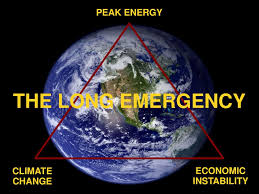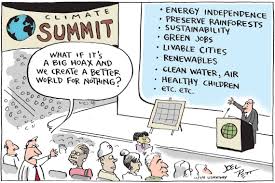
Welcome to The Local Resilience Project (LRP). I hope you find value and inspiration in the information, conversation and invitations posted here. Positive feedback and sharing will be greatly appreciated as we work together to navigate The Long Emergency.
This first LRP post takes its title from a book written by JH Kunstler in 2005: ‘The Long Emergency: Surviving The Converging Catastrophes Of The 21st Century’ in which he explores the consequences of world peak oil production coinciding with disruptive climate change, resurgent diseases, chronic water scarcity, global economic instability and warfare.
At the time of writing, much of Australia is in various states of emergency, overwhelmed and grief stricken with the consequences of climate change causing record breaking drought, chronic water scarcity and catastrophic bushfires. All of which have converged to decimate wild life populations, destroy more than 12 million hectares of native forest and deliver unprecedented changes to the lives and livelihoods of hundreds of thousands of Australians. For them, the visceral impact of The Long Emergency has begun.
One of the primary goals in creating The Local Resilience Project website was to offer a set of practical resources to deepen understanding of disruptive climate change and to encourage behavioural changes in the direction of greater resilience. These resources: The Conversation, The Checklist and The Call To Action remain the foundation of the LRP work but the speed at which climate change has been occurring has warranted a Blog for keeping readers better resourced. Time is no longer on our side for contemplating a resilient future, and our choices are becoming more limited by the day. There are now academic discussions arguing that resilience is no longer an option and that we should prepare for deep adaptation to our planet’s rapidly changing biosphere.
The Pace Of Change.
To demonstrate how fast time and tide are moving we only have to look at the last 12 months in Australia. I began writing the LRP in December 2018 when there was still a strong culture of climate change denial and complacency in the community. In May 2019 we re-elected a Federal Government premised on climate change denial and continuing extraction, sale and subsidy of fossil fuels. Six months later in January 2020, much of eastern and southern Australia is on fire and the conversation and complacency has changed dramatically.
What has occurred in 12 months years is breathtaking: Feedback loops and tipping points that scientists warned us about for 30 years are in full swing and we are ill prepared to deal with them. We are living through The Long Emergency and whether we believe in human contribution to climate change or not, we and our loved ones will be dealing with the consequences of a rapidly warming planet for decades to come. The sooner we take this seriously and take action the better. As Paul Gilding wrote in his book ‘The Great Disruption’ (2010), when “the full scale of the imminent crisis hits us, our response will be proportionally dramatic, mobilising as we do in war.”

How Are You Navigating The Long Emergency?
Over the past few years, climate change has become very much a mainstream issue and yet most of us remain unsure of what to do about it in our personal and professional lives. In response to this confusion, Prof Jem Bendell of Cumbria University in the UK conducted a survey to find out how people were feeling about the scientific warnings and what, if anything, they were doing about it. His findings are reproduced in the list below.
Take a few minutes and read through this list and consider where your Long Emergency Navigation Strategy sits. It may include more than one response. After identifying yours, return to LocalResilienceProject.org and fill out The Checklist to find where your household’s resilience currently sits. Then move to The Call To Action where you can start feeling a greater sense of connection and agency by sharing your awareness with your social networks. The more informed our communities are the better equipped they will be to handle the many disruptions coming our way in the years ahead.
RESPONSES TO ACCEPTING THE LONG EMERGENCY
- The SOS Response: Reading & talking much more about climate change, peak oil, societal collapse & all the issues it brings up, but without significantly changing behaviour.
- The Survivalist Response: Changing jobs, moving home, building a more self-sufficient good life, partly off-grid, usually in the countryside. Or researching this process.
- The Transcendence Response: Seeking personal growth via therapy, time in nature, spirituality, or deep conversations.
- The Professional Sunk Costs Response: Talking about climate change and/ societal collapse in one’s professional circles in order to explore what could be done within one’s profession & beyond.
- The ‘Not Hiding Anymore’ Response: Taking more risks in the workplace & community to express one’s views with less fear of repercussion; speaking about purpose & values and not accepting dominant assumptions re growth, profit & conformity.
- The Taking A Breather Response: Reducing workload to create more time for exploring the issue of climate change or societal collapse in anticipation of making a major decision about changing one’s life.
- The Gentle Prepper Response: Retraining to develop skills that may be useful to oneself and others post-collapse e.g. learning first aid, horticulture, herbal medicines, musical instruments …
- The Palliative Love Response: Seeking to repair/ improve close relationships, while ‘smelling the flowers’ and being nicer to neighbours and colleagues.
- The Emotional Self Care Response: Seeking to know how to deal better with fear, confusion and anticipatory grief, for oneself and to help others with those emotions.
- The All Options Open Response: Looking for networks of people who are creating self-reliant ‘Arks’ in order to support them and have the option to join later.
- The Keep A Cyanide Pill Response: Deciding that the options to change one’s life and work aren’t attractive or practical now, so continuing as normal but with a greater focus on peace and joy while waiting for the inevitable collapse.
- The Blue Pill Response: Accepting societal collapse and going through the range of emotions, considering a range of options and then consciously choosing to live in denial in order to have a happier life for as long as possible.
- The War Footing Response: Organising on the basis that we face a climate emergency & should prepare for collapse. It includes preparing for food rationing, working on the political agenda & the belief in government & citizen sacrifice that operates in war.
- The ‘Where’s Bruce Willis?’ Response: Campaigning for geo engineering or carbon sequestration, Arctic cloud brightening and kelp planting, based on the idea that while civilisation exists we have the chance to reduce the speed of climate change and give ourselves a chance to avoid extinction.
- The Climate Peace Activist Response: Turning to Non Violent Direct Action to force changes in practices that are making matters worse e.g. focusing on a carbon emissions reduction paradigm.
- The Humanitarian Response: Organising to promote a particular set of proposals and capabilities for adapting to the coming changes, in particular at local levels.
- The Reframing Collapse Response: Organising to promote the cultural concepts that will help us find and express meaning after societal-collapse. It involves looking for beauty and meaning in a new context.
- The ‘Follow Me’ Response: Evangelising about one’s views on life, the cosmos and human organisation. It can be religious, spiritual or political and is usually cloaked in stories about how becoming a believer will reduce the harm of climate change or help with whatever form of human community may survive it.
- The Depressive Response: Anger or anxiety turning into depression and often leading to suicide.
- The Violent Response: Using violent direct action for revenge or to impose change.
Until next time,
Stay inspired, connected and resilient,
Lesley Gillett
Creator, The Local Resilient Project.
